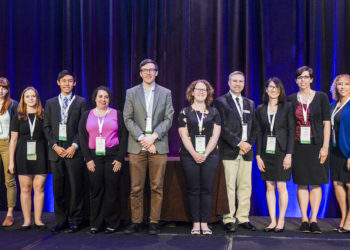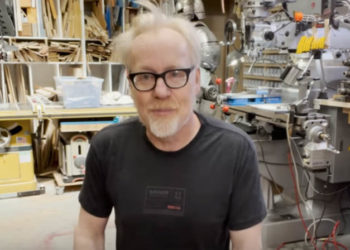Editor’s note: Our guest post today is from Mary Grace Hébert, the Content Development Specialist at the National Communication Association. Grace received her Ph.D. in communication from the University of Illinois at Urbana-Champaign in August 2019. She draws on her experiences working in a learned society to reflect on the benefits of hiring PhDs into staff roles.
In The New PhD: How to Build a Better Graduate Education, Leonard Cassuto and Robert Weisbuch estimate that half of students who enter PhD programs will not complete their degrees. Of the half who do complete their degrees, half of those will go into non-academic positions. These positions are often referred to as “alt-ac” careers or as “career diversity,” the term preferred by the American Historical Association. Often, PhDs may enter fields outside of the academy altogether, such as non-profit, corporate, or government work. However, some careers take PhDs only a short distance from university teaching and research, such as learned societies or academic publishers.
Conversations about alt-ac or career-diverse doctorates can be fraught for universities, students, and employers. Students may wonder how their skills can transfer outside of the academy, while professors may struggle with how to help students in a career path that they may never have undertaken. Potential employers may wonder, “What can someone with a PhD offer my organization?”

Learned societies and academic publishers may find that someone with a PhD can offer advantages, such as an insider knowledge of academia. For example, I earned my PhD in communication in August 2019. Shortly after, I joined the staff of the National Communication Association (NCA) as the Content Development Specialist. Because of my background, I understand the kinds of questions graduate students ask, the unique timing of the academic calendar, and the publication process. This knowledge helps when writing content and promoting resources because I can identify the most relevant information for our stakeholders and better tailor those resources to the intended audience.
Furthermore, as learned societies and academic publishers expand outreach in an era of misinformation, employees with PhDs can capably translate research for non-academic audiences. At NCA, my familiarity with communication research means I can accurately translate academic articles and capably work with scholars on editing material for public consumption. By serving as a research translator, I can ensure accurate public dissemination of my discipline’s research. In an era when science is under attack, having science-literate communicators offers higher education a way to fight back. Throughout a PhD program, people often become familiar with other areas of the academy. While I’m currently working within my discipline, my academic background and familiarity with academic research in the humanities and social sciences have prepared me to work at other organizations in related disciplines.
PhDs are also often familiar with the ongoing calls for racial and social justice within higher education and society writ large. This desire for change can be an asset as learned societies and academic publishers look to address whiteness within scholarly publishing, economic inequality, or assess the impact of adjunctification on scholarly publishing and higher education. For example, prior to joining the NCA staff, I volunteered with the Graduate Employees’ Organization, the union that represents teaching and graduate assistants at the University of Illinois at Urbana-Champaign. This experience was an asset when developing the Labor Day episode of Communication Matters: The NCA Podcast, which focused on graduate employee unionization. Insight into these issues would serve these institutions well and provides new PhDs the opportunity to advance meaningful change within their disciplines and higher education generally.
The academic job market has been increasingly bleak for the past few years. Recently, prospects have been even worse due to the impact of the COVID-19 pandemic on university finances. Learned societies and academic publishers can be a “home away from home” for PhDs, especially new PhDs just beginning their career journeys. For new PhDs, these institutions can offer a familiar environment and the prospect of continuing to engage with higher education or their discipline. For the institutions, PhDs can use their research, writing, and analytical skills to further the institutions’ missions.
Discussion
3 Thoughts on "Guest Post — Why Learned Societies and Academic Publishers Can Benefit from Hiring PhDs"
Mary: You bring an interesting perspective. What I found after spending some 35 years in publishing on both the commercial and society/association sides of publishing as both a salesperson, product manager, editor, publisher and VP is that the not-for-profit organization needed business acumen more than insider knowledge. The committee systems in the not-for-profit arena seemed to provide the insider information if they were asked.
Newly, minted PhDs bring smarts to the table. They are able to rapidly analyze problems and provide carefully thought out possible solutions which are backed by research and data. And, if the organization is lucky in the hire s/he will rapidly learn the business side of the business. I think the later point is the most crucial. It is that leap from academia to business that is the most difficult. But once made, the organization has a true asset.
Dr. Hebert draws a distinction between the “insider knowledge of academia” gained from advanced (PhD) studies and from that gained by regular college attendance that many in the publishing industry will have experienced. I wonder how many of the latter would agree that those few extra years would have made much difference? They might argue that folk aiming for advanced studies have already been selected on the basis of ability to cross a high academic entry bar, so are likely to fare well in the industry on that basis alone. Furthermore, PhDs will require higher salaries and that will increase publishing costs.
Dr. Hebert raises excellent counterarguments. However, they do not include a deep appreciation of the many demands on her PhD mentor’s time. In addition to teaching, research and administration, professors freely give their time to the reviewing of grant applications and journal articles. For this, they must continually update their expertise by reading a literature that is becoming increasingly unavailable online at their institutions. So they have to go to interlibrary loans, not only for their routine reading, but also when checking references in papers they are reviewing. And in recent years, publishers have begun teasing them with incomplete TOCs, so they have to click on journal webpages to get the full list. I could go on … .
While I commend the author for putting her stake in the ground, Harvey is spot on. We share similar experience profiles. Publishing is a both a science and art, just as defense attorneys or neurosurgeons among others possess both, and knowing academic calendars and content discussions – as well as other “science” items like paper weight, ISBNs, LOC, pricing, formats, stamps/foil, imprimaturs, print runs, marketing, author and editor profiles and capabilities, etc. – is only one small part. Prescience/intuition/knack – anticipating the market and identifying demand and need, i.e. the “art” informed by the science – is the true measure of a successful publisher and most-times a publishing career.



